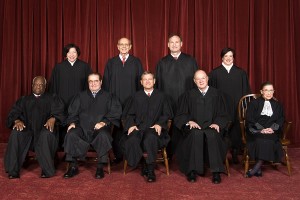Family Council Calls on Justices to Stand by Arkansans
FOR IMMEDIATE RELEASE
Tuesday, April 28, 2015
On Tuesday, the U.S. Supreme Court heard arguments in Obergefell v. Hodges. This is considered by many to be a landmark case that will determine the future of marriage in America.
Family Council President Jerry Cox released a statement, saying, “Contrary to what some may believe, this is not simply a fight over same-sex marriage. This is about how marriage will be defined in America and who gets to write that definition.”
Cox said the U.S. Supreme Court should uphold state marriage laws in order to be consistent with its decision in United States v. Windsor. “In that ruling, the court said that marriage would be defined by each individual state. Upholding state marriage amendments as constitutional is the only way the court can be consistent with its 2013 Windsor decision.”
Cox said state marriage laws do more than simply ban same-sex marriage. “When the law says marriage is the union of one man to one woman, that is not simply a same-sex marriage ban. That defines the institution of marriage, and it prevents any other union from being classified as ‘marriage,’ including everything from same-sex marriage to polygamy.”
Cox said the U.S. Supreme Court should respect the will of the people concerning marriage. “If the court chooses to strike state marriage laws now, it will be doing so at the expense of democracy. Voters in Arkansas and thirty other states chose to define marriage as the union of one man and one woman. Voters in only three states have voted to define marriage differently. Every poll in more than a decade has indicated Arkansans still support the definition of marriage they adopted in 2004. This is something voters have handled very capably up to this point. Unilaterally striking these state marriage laws would signal that voters are incapable or irrelevant in the eyes of the U.S. Supreme Court.”
###

